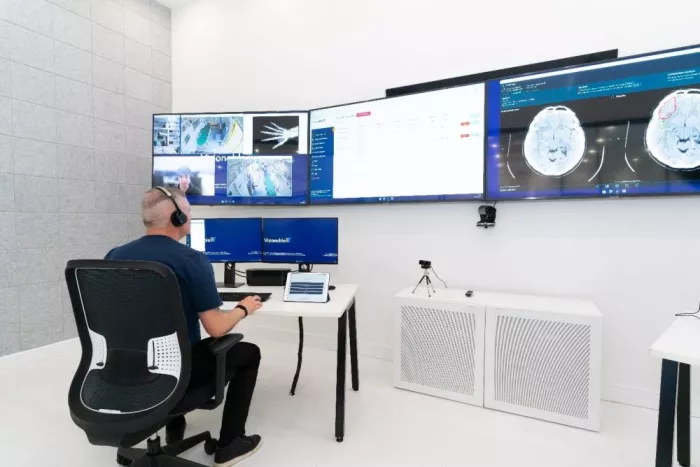In the fast-paced world we live in, mental clarity is often elusive, with the demands of modern life taking a toll on cognitive function. Whether you’re navigating a hectic work schedule, managing personal commitments, or simply seeking to enhance your mental acuity, this comprehensive guide is designed to provide actionable insights on how to improve mental clarity. From lifestyle adjustments to cognitive exercises, we explore a range of strategies to empower individuals in their quest for heightened cognitive function and mental sharpness.
Understanding Mental Clarity
Before delving into strategies to improve mental clarity, it’s essential to understand what mental clarity encompasses. Mental clarity refers to the state of having a clear and focused mind, devoid of mental fog or distractions. It involves the ability to think clearly, make decisions with precision, and maintain concentration on tasks. Factors such as stress, lack of sleep, poor nutrition, and a sedentary lifestyle can contribute to a decline in mental clarity. Recognizing the multifaceted nature of cognitive well-being sets the stage for implementing effective interventions.
Prioritizing Quality Sleep
Quality sleep is a fundamental component of cognitive health and a key factor in efforts to improve mental clarity. During sleep, the brain undergoes crucial processes such as memory consolidation and neural repair. Establishing a consistent sleep schedule, creating a conducive sleep environment, and practicing relaxation techniques before bedtime can contribute to better sleep quality. Adequate rest sets the foundation for enhanced cognitive function, improved mood, and increased mental clarity throughout the day.
Nutrition for Cognitive Fuel
The connection between diet and cognitive function is undeniable, making nutrition a vital aspect of any strategy to improve mental clarity. Incorporating a well-balanced diet rich in nutrients such as omega-3 fatty acids, antioxidants, and vitamins is essential. Foods like fatty fish, berries, leafy greens, and whole grains have been linked to cognitive benefits. Additionally, staying hydrated is crucial, as dehydration can impair cognitive function. Making mindful choices about what we eat directly impacts our brain health, contributing to improved mental clarity.
Hydration and Cognitive Function
While often overlooked, proper hydration plays a significant role in cognitive function and the quest to improve mental clarity. Dehydration can lead to cognitive fatigue, difficulty concentrating, and an overall decline in mental performance. Establishing a habit of regular water intake throughout the day is a simple yet effective strategy to support cognitive well-being. It’s important to be mindful of individual hydration needs, considering factors such as climate, physical activity, and overall health.
Mindfulness and Meditation
Mindfulness and meditation have gained recognition for their positive impact on mental clarity and overall well-being. These contemplative practices involve focused attention and awareness, helping individuals manage stress, reduce anxiety, and improve cognitive function. Mindfulness-based techniques, such as mindful breathing and guided meditation, can be incorporated into daily routines to promote mental clarity. Regular practice enhances the ability to stay present, mitigate distractions, and cultivate a calm and clear mental state.
Physical Exercise
Physical exercise not only contributes to physical health but also plays a crucial role in enhancing cognitive function and mental clarity. Regular aerobic exercise has been linked to improved memory, cognitive flexibility, and attention span. Engaging in activities like brisk walking, jogging, or dancing increases blood flow to the brain, delivering essential nutrients and oxygen. Additionally, exercise stimulates the release of neurotransmitters like dopamine and serotonin, promoting a positive mood and heightened mental clarity.
Cognitive Exercises and Brain Training
Just as physical exercise benefits the body, cognitive exercises and brain training activities are designed to sharpen mental acuity and improve mental clarity. Puzzles, crosswords, Sudoku, and memory games challenge the brain, promoting neural plasticity and cognitive resilience. Mobile apps and online platforms offer a variety of brain-training exercises that target different cognitive functions. Regular engagement in these activities provides a stimulating workout for the brain, fostering improved cognitive performance.
Managing Stress
Chronic stress can significantly impact mental clarity, leading to cognitive fatigue and impaired decision-making. Therefore, stress management is a critical component of any strategy to improve mental clarity. Techniques such as deep breathing, progressive muscle relaxation, and mindfulness-based stress reduction can be effective in reducing stress levels. Establishing healthy boundaries, prioritizing self-care, and seeking support when needed are integral to managing stress and fostering a clear and focused mind.
Digital Detox
In the era of constant connectivity, the digital world can contribute to information overload and mental fatigue. Implementing a digital detox, where individuals intentionally disconnect from screens and electronic devices, is a valuable practice to improve mental clarity. Setting designated times for unplugging, creating tech-free zones, and limiting screen time before bedtime can help mitigate the cognitive strain associated with excessive digital exposure. Balancing online activities with moments of digital detox contributes to a more mindful and focused mindset.
Establishing Clear Priorities and Organizational Strategies
Clear priorities and effective organizational strategies are essential for maintaining mental clarity in the face of daily challenges and responsibilities. Creating to-do lists, setting realistic goals, and breaking tasks into manageable steps prevent overwhelm and promote a systematic approach to problem-solving. Time management techniques, such as the Pomodoro Technique, can enhance productivity by breaking work into intervals with short breaks. By organizing thoughts and tasks, individuals can navigate their responsibilities with greater mental clarity and efficiency.
Seeking Social Connection
Social connection is a powerful determinant of cognitive well-being and can contribute significantly to efforts to improve mental clarity. Meaningful relationships and positive social interactions stimulate the brain, promoting emotional resilience and cognitive vitality. Engaging in social activities, maintaining strong social bonds, and seeking support from friends and family create a sense of connection that positively influences mental clarity. Healthy relationships provide a support system that fosters emotional well-being and cognitive function.
Professional Guidance
In cases where individuals encounter persistent challenges in mental clarity or cognitive function, seeking professional guidance is advisable. Cognitive difficulties may be related to underlying medical conditions, stressors, or mental health issues. Consulting with healthcare professionals, such as neurologists, psychiatrists, or psychologists, can help identify underlying factors and determine appropriate interventions. Professional guidance ensures a comprehensive and personalized approach to addressing cognitive concerns and improving mental clarity.
Conclusion
In conclusion, the pursuit of improved mental clarity is a multifaceted journey that encompasses lifestyle choices, cognitive exercises, and mindful practices. By prioritizing quality sleep, adopting a nutritious diet, engaging in physical and cognitive activities, and managing stress, individuals can create a conducive environment for cognitive well-being. The integration of mindfulness, social connection, and organizational strategies further contributes to a clear and focused mindset. Empowered with a diverse toolkit of strategies, individuals can navigate the complexities of modern life with enhanced mental clarity, promoting cognitive resilience and overall well-being.
[inline_related_posts title=”You Might Be Interested In” title_align=”left” style=”list” number=”6″ align=”none” ids=”4240,4201,4199″ by=”categories” orderby=”rand” order=”DESC” hide_thumb=”no” thumb_right=”no” views=”no” date=”yes” grid_columns=”2″ post_type=”” tax=””]

































